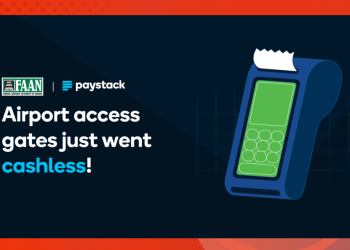Nigeria recently amended the Cybercrimes (Prohibition, Prevention, etc.) Act of 2015. Signed into law by President Bola Tinubu in February 2024, the updated legislation seeks to respond to evolving cyber threats, strengthen law enforcement powers, and regulate digital activities more strictly. While the reforms are designed to protect national security and the financial system, they have sparked concerns about privacy, free speech, and press freedom.
Expanded Law Enforcement Powers
The amended Act gives security agencies broader authority. They can now intercept communications without court approval in urgent cases. Telecommunications companies must retain user data for longer periods. Banks and financial institutions must report suspicious activity within 24 hours. These measures are meant to help investigators trace cybercriminals more effectively. However, critics warn that the provisions may enable mass surveillance and weaken privacy rights.
Criminalisation of Online Content
One of the most controversial changes is the criminalisation of “false” or “misleading” online information. Supporters argue it will help curb misinformation. Yet media groups and civil society organisations view it as a threat to free speech. Section 24 of the Act, which addresses “cyberstalking,” has been used to detain journalists, activists, and critics. The law also prohibits unauthorised phone recordings, punishable by fines up to ₦7 million and prison terms of up to three years.
Impact on Free Speech and the Press
Journalists and editors report increasing use of the Act to intimidate the press. The Nigeria Guild of Editors and the Socio-Economic Rights and Accountability Project have called for urgent reforms. They argue that vague terms such as “causing breakdown of law and order” allow selective enforcement. Several reporters have faced detention and prosecution under the law. These actions have created a chilling effect, with many avoiding sensitive reporting out of fear of arrest.
Cybersecurity and Economic Implications
Nigeria faces growing cyber risks, from online fraud to crypto-related scams. The Central Bank has estimated that the financial sector lost over ₦1.1 trillion to cybercrime between 2017 and 2023, with ₦53.4 billion lost in 2024 alone. The amended Act imposes heavier penalties on cyber offences, including hacking, identity theft, and unauthorised digital transactions. While this could deter criminals, business groups warn that misuse of the Act may erode investor confidence, discourage innovation, and weaken Nigeria’s digital economy.
Civil Society and Legal Challenges
Civil rights groups have mounted strong opposition. Human rights bodies argue the law conflicts with Nigeria’s constitutional protections and international obligations. The Socio-Economic Rights and Accountability Project has taken the case to the ECOWAS Court, seeking a ruling against provisions that threaten free expression. Protests have also emerged, with activists calling the Act a tool for silencing dissent.
Balancing Security and Rights
The amended Cybercrime Act highlights Nigeria’s struggle to balance security with liberty. On one hand, the reforms address urgent challenges such as fraud, ransomware, and digital scams. On the other, the vague wording and heavy enforcement powers risk undermining democratic freedoms. The future of Nigeria’s digital space will depend on whether safeguards, judicial oversight, and clearer definitions are introduced to prevent abuse.
Conclusion
The amended Cybercrime Act strengthens Nigeria’s ability to fight digital crime and protect its financial systems. Yet it also raises deep concerns about free speech, press freedom, and privacy. Unless the law is applied with transparency and restraint, it risks stifling democratic accountability and deterring economic growth. Nigeria now faces the task of proving that it can secure its digital future without compromising fundamental rights.














